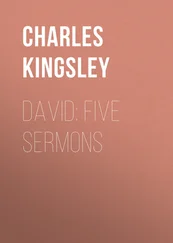Charles Kingsley - Westminster Sermons
Здесь есть возможность читать онлайн «Charles Kingsley - Westminster Sermons» — ознакомительный отрывок электронной книги совершенно бесплатно, а после прочтения отрывка купить полную версию. В некоторых случаях можно слушать аудио, скачать через торрент в формате fb2 и присутствует краткое содержание. Жанр: foreign_prose, foreign_religion, Философия, foreign_psychology, foreign_antique, на английском языке. Описание произведения, (предисловие) а так же отзывы посетителей доступны на портале библиотеки ЛибКат.
- Название:Westminster Sermons
- Автор:
- Жанр:
- Год:неизвестен
- ISBN:нет данных
- Рейтинг книги:4 / 5. Голосов: 1
-
Избранное:Добавить в избранное
- Отзывы:
-
Ваша оценка:
- 80
- 1
- 2
- 3
- 4
- 5
Westminster Sermons: краткое содержание, описание и аннотация
Предлагаем к чтению аннотацию, описание, краткое содержание или предисловие (зависит от того, что написал сам автор книги «Westminster Sermons»). Если вы не нашли необходимую информацию о книге — напишите в комментариях, мы постараемся отыскать её.
Westminster Sermons — читать онлайн ознакомительный отрывок
Ниже представлен текст книги, разбитый по страницам. Система сохранения места последней прочитанной страницы, позволяет с удобством читать онлайн бесплатно книгу «Westminster Sermons», без необходимости каждый раз заново искать на чём Вы остановились. Поставьте закладку, и сможете в любой момент перейти на страницу, на которой закончили чтение.
Интервал:
Закладка:
But if it be said—After all, there is no Why. The doctrine of evolution, by doing away with the theory of creation, does away with that of final causes,—Let us answer boldly,—Not in the least. We might accept all that Mr Darwin, all that Professor Huxley, all that other most able men, have so learnedly and so acutely written on physical science, and yet preserve our natural Theology on exactly the same basis as that on which Butler and Paley left it. That we should have to develop it, I do not deny. That we should have to relinquish it, I do.
Let me press this thought earnestly on you. I know that many wiser and better men than I have fears on this point. I cannot share in them.
All, it seems to me, that the new doctrines of evolution demand is this:—We all agree—for the fact is patent—that our own bodies, and indeed the body of every living creature, are evolved from a seemingly simple germ by natural laws, without visible action of any designing will or mind, into the full organization of a human or other creature. Yet we do not say on that account—God did not create me: I only grew. We hold in this case to our old idea, and say—If there be evolution, there must be an evolver. Now the new physical theories only ask us, it seems to me, to extend this conception to the whole universe; to believe that not individuals merely, but whole varieties and races; the total organized life on this planet; and, it may be, the total organization of the universe, have been evolved just as our bodies are, by natural laws acting through circumstance. This may be true, or may be false. But all its truth can do to the natural Theologian will be to make him believe that the Creator bears the same relation to the whole universe, as that Creator undeniably bears to every individual human body.
I entreat you to weigh these words, which have not been written in haste; and I entreat you also, if you wish to see how little the new theory, that species may have been gradually created by variation, natural selection, and so forth, interferes with the old theory of design, contrivance, and adaptation, nay, with the fullest admission of benevolent final causes—I entreat you, I say, to study Darwin’s “Fertilization of Orchids”—a book which, whether his main theory be true or not, will still remain a most valuable addition to natural Theology.
For suppose that all the species of Orchids, and not only they, but their congeners—the Gingers, the Arrowroots, the Bananas—are all the descendants of one original form, which was most probably nearly allied to the Snowdrop and the Iris. What then? Would that be one whit more wonderful, more unworthy of the wisdom and power of God, than if they were, as most believe, created each and all at once, with their minute and often imaginary shades of difference? What would the natural Theologian have to say, were the first theory true, save that God’s works are even more wonderful that he always believed them to be? As for the theory being impossible: we must leave the discussion of that to physical students. It is not for us clergymen to limit the power of God. “Is anything too hard for the Lord?” asked the prophet of old; and we have a right to ask it as long as time shall last. If it be said that natural selection is too simple a cause to produce such fantastic variety: that, again, is a question to be settled exclusively by physical students. All we have to say on the matter is—That we always knew that God works by very simple, or seemingly simple, means; that the whole universe, as far as we could discern it, was one concatenation of the most simple means; that it was wonderful, yea, miraculous, in our eyes, that a child should resemble its parents, that the raindrops should make the grass grow, that the grass should become flesh, and the flesh sustenance for the thinking brain of man. Ought God to seem less or more august in our eyes, when we are told that His means are even more simple than we supposed? We held him to be Almighty and All-wise. Are we to reverence Him less or more, if we hear that His might is greater, His wisdom deeper, than we ever dreamed? We believed that His care was over all His works; that His Providence watched perpetually over the whole universe. We were taught—some of us at least—by Holy Scripture, to believe that the whole history of the universe was made up of special Providences. If, then, that should be true which Mr Darwin eloquently writes—“It may be metaphorically said that natural selection is daily and hourly scrutinizing, throughout the world, every variation, even the slightest; rejecting that which is bad, preserving and adding up that which is good, silently and incessantly working whenever and wherever opportunity offers at the improvement of every organic being,”—if that, I say, were proven to be true: ought God’s care and God’s providence to seem less or more magnificent in our eyes? Of old it was said by Him without whom nothing is made, “My Father worketh hitherto, and I work.” Shall we quarrel with Science, if she should show how those words are true? What, in one word, should we have to say but this?—We knew of old that God was so wise that He could make all things: but, behold, He is so much wiser than even that, that He can make all things make themselves.
But it may be said—These notions are contrary to Scripture. I must beg very humbly, but very firmly, to demur to that opinion. Scripture says that God created. But it nowhere defines that term. The means, the How, of Creation is nowhere specified. Scripture, again, says that organized beings were produced, each according to their kind. But it nowhere defines that term. What a kind includes; whether it includes or not the capacity of varying—which is just the question in point—is nowhere specified. And I think it a most important rule in Scriptural exegesis, to be most cautious as to limiting the meaning of any term which Scripture itself has not limited, lest we find ourselves putting into the teaching of Scripture our own human theories or prejudices. And consider—Is not man a kind? And has not mankind varied, physically, intellectually, spiritually? Is not the Bible, from beginning to end, a history of the variations of mankind, for worse or for better, from their original type? Let us rather look with calmness, and even with hope and goodwill, on these new theories; for, correct or incorrect, they surely mark a tendency towards a more, not a less, Scriptural view of Nature. Are they not attempts, whether successful or unsuccessful, to escape from that shallow mechanical notion of the universe and its Creator which was too much in vogue in the eighteenth century among divines as well as philosophers; the theory which Goethe, to do him justice—and after him Mr Thomas Carlyle—have treated with such noble scorn; the theory, I mean, that God has wound up the universe like a clock, and left it to tick by itself till it runs down, never troubling Himself with it; save possibly—for even that was only half believed—by rare miraculous interferences with the laws which He Himself had made? Out of that chilling dream of a dead universe ungoverned by an absent God, the human mind, in Germany especially, tried during the early part of this century to escape by strange roads; roads by which there was no escape, because they were not laid down on the firm ground of scientific facts. Then, in despair, men turned to the facts which they had neglected; and said—We are weary of philosophy: we will study you, and you alone. As for God, who can find Him? And they have worked at the facts like gallant and honest men; and their work, like all good work, has produced, in the last fifty years, results more enormous than they even dreamed. But what are they finding, more and more, below their facts, below all phenomena which the scalpel and the microscope can show? A something nameless, invisible, imponderable, yet seemingly omnipresent and omnipotent, retreating before them deeper and deeper, the deeper they delve: namely, the life which shapes and makes; that which the old schoolmen called “forma formativa,” which they call vital force and what not—metaphors all, or rather counters to mark an unknown quantity, as if they should call it x or y . One says—It is all vibrations: but his reason, unsatisfied, asks—And what makes the vibrations vibrate? Another—It is all physiological units: but his reason asks—What is the “physis,” the nature and innate tendency of the units? A third—It may be all caused by infinitely numerous “gemmules:” but his reason asks him—What puts infinite order into these gemmules, instead of infinite anarchy? I mention these theories not to laugh at them. I have all due respect for those who have put them forth. Nor would it interfere with my theological creed, if any or all of them were proven to be true to-morrow. I mention them only to show that beneath all these theories, true or false, still lies that unknown x . Scientific men are becoming more and more aware of it; I had almost said, ready to worship it. More and more the noblest-minded of them are engrossed by the mystery of that unknown and truly miraculous element in Nature, which is always escaping them, though they cannot escape it. How should they escape it? Was it not written of old—“Whither shall I go from Thy presence, or whither shall I flee from Thy Spirit?”
Читать дальшеИнтервал:
Закладка:
Похожие книги на «Westminster Sermons»
Представляем Вашему вниманию похожие книги на «Westminster Sermons» списком для выбора. Мы отобрали схожую по названию и смыслу литературу в надежде предоставить читателям больше вариантов отыскать новые, интересные, ещё непрочитанные произведения.
Обсуждение, отзывы о книге «Westminster Sermons» и просто собственные мнения читателей. Оставьте ваши комментарии, напишите, что Вы думаете о произведении, его смысле или главных героях. Укажите что конкретно понравилось, а что нет, и почему Вы так считаете.












